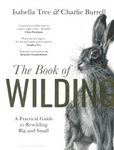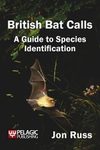– Winner of the Richard Jefferies Society and White Horse Book Shop Literary Prize
"[...] This is an enjoyable and stimulating book. Its vision of a rebirded Britain should become part of our future mind-set."
– Barry Gray, Ibis 163(1), January 2021
"A splendid new book [...] all rational argument seems to be on his side"
– Professor Tim Flannery, The Guardian
"This book made me think. Many writers of the current decade have bemoaned the loss of nature, presented a variety of anthropogenic reasons for the decline (not only in species but also, importantly, in abundance), and hinted at what a more positive future could resemble if we do the right thing. This template makes very straightforward reading for someone like me, who has worked in nature conservation for 40 years. Ben Macdonald’s thesis, on the contrary, is not straightforward at all, and challenges much of the received wisdom about how to bring back Britain’s birds. [...] Rebirding certainly provides food for thought, in any case, and deserves to be read by those interested in a more natural future."
– Andy Clements, British Wildlife 31(2), December 2019
"This is most definitely my book of the year and possibly the whole decade! Regular readers will know I rarely gush and that is usually over the writing skills of authors and not content. This is an unashamed gush for content with an appreciative nod to its very accessible prose and light but deadly serious style. [...] [This book] brings to the fore lessons currently being learned by high profile re-wilding schemes like the Knepp Estate where iconic birds like Nightingale and Turtle Dove have bucked the national trends and then some. This book is a life changer and if we get off our collective backside and scream its messages loudly enough we really could change the entire face of Britain for the better. Buy it, borrow it, but above all read it, and when you have, add your voice to its call for natural salvation."
– Bo Beolens, Fatbirder
"This is a wonderful book, visionary, illuminating and fascinating."
– George Monbiot
"A visionary yet practical book."
– John Burnside, New Statesman
"'It has shaped how I think about my farm, and the choices we make about our land [...]"
– James Rebanks
"An exposé, a plea, and a vision of a better future."
– Simon Reeve
"A wonderfully imaginative book which shows how things could be with our rapidly declining areas of countryside, instead of how – despairingly – they are now."
– Rod Liddle (Associate Editor of The Spectator)
"This passionate, authoritative, up-to-date and ultimately optimistic book is a worthy comparison to such seminal works as George Monbiot's Feral and Mark Cocker's Our Place."
– Jonathan Elphick, BBC Wildlife
"Rebirding is beautifully written, based on deep, personal experience and a genuine love of the subject. You may not have come across Ben Macdonald before now; but believe me, you will hear a lot more from him in the future."
– Stephen Moss
"Having read a number of the recent books about rewilding, I was tempted to think 'Oh blimey, not another one!'. I am now tempted to say 'they left the best till last [...] "
– Bill Oddie
"A book about a key subject at a key time, passionate and deeply thought-through. Anyone concerned with the future of the natural world in Britain will want to read it."
– Mike McCarthy (author of The Moth Snowstorm)
"With George Monbiot's Feral and Isabella Tree's Wilding, Rebirding sits separate from both and is in fact an essential third book to read if you've enjoyed the others. In short, it's a captivating, fascinating and inspiring read"
– Ed Stubbs, Birdwatch Magazine
"This is the best book on nature, conservation and rewilding I read in 2019 – perhaps one of the best I’ve ever read. I finished reading it with a real sense of hope for the future."
– Alex Roddie, Great Outdoors Magazine
"A must read and a good read [...] the type of book that grabs and keeps my attention. You should read it and I think you may well enjoy it a lot."
– Mark Avery
"A beautifully written, thoughtful and yes, provocative book"
– Dr Martin Harper (Conservation Director, RSPB)
"This is a stimulating and important book, beautifully written and well researched [...] It provides a compelling vision for the future"
– Dr Carl Jones (Chief Scientist, Durrell Wildlife Conservation Trust)
"I thoroughly recommend the book and applaud its breadth and detail [...] Macdonald's book has really surprised me. I have learned much I did not know about Britain's early bird faunas, and even the history of its mammals [...] The level of treatment and scholarly references are on a par with conservation science books"
– Peter Taylor, ECOS Magazine
"Rebirding is an exceptional book from an exceptional author. Visionary, courageous, critical, Benedict maps out how we might finally turn things around, rewilding our national parks, restoring natural ecosystems and allowing our wildlife a far richer future."
– Surfbirds
"A captivating, fascinating and inspiring read"
– Birdwatch








































